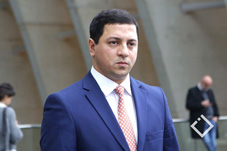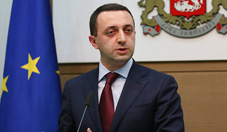
Leaders of government react to letters from US senators
By Nika Gamtsemlidze
Tuesday, January 28
For the last few weeks, several letters from US senators and other leaders have been made public. The letters mostly focus on the ongoing events in Georgia and call on the government to make sure that the friendly relationship between the two countries stays positive.
In most letters, US representatives write about the electoral system of Georgia, the lifetime appointment of 14 supreme court judges, rallies in Tbilisi and Facebook pages that were deleted from the social media because of anti-Western sentiments they were promoting.
As the Speaker of the Parliament of Georgia, Archil Talakvadze said with the reporters, starting from February, several high-level meetings will be held with US leaders. He said they plan to prepare answers to all of their questions and have intensive communication with the US Congress.
“Several international and high-level visits will be taking place from February and we will have intensive communication with them. We will provide our friends in the US Congress with accurate information on ongoing processes in Georgia,” noted Talakvadze.
Defense Minister Irakli Gharibashvili thinks that any questions about any misunderstandings that may arise between individual congressmen and Georgian government should be addressed not through letters but through face-to-face dialogue.
“We will do it. No extra dramatization of this issue is in the best interests of us, our State and our people. I want everyone to know this well,” stressed the Defense Minister.
According to the Tbilisi Mayor Kakha Kaladze, Georgia and the US need to communicate more.
“Letters we were seeing clearly contained inaccurate information on specific issues,” said Kaladze.
He said that Georgian representatives should visit the US and provide them with accurate information.
The letters of US senators included the Georgia Support Act passed by the US House of Representatives, one of the senators stressed that an important part of this act is promoting democratic value in Georgia, transparency of the civil sector, and fair elections.
For the first time in the country's history, Georgia and its resources are viewed in a dangerous, negative context. One of the senators said that because of the deteriorating situation, the US President has signed two documents, dealing with the growing antagonistic actions of the Georgian government towards democratic principles, free markets, and US business interests.
The United States established diplomatic relations with Georgia in 1992, following Georgia’s 1991 independence from the Soviet Union. The United States is committed to helping Georgia deepen Euro-Atlantic ties and strengthen its democratic institutions.
The United States supports Georgia’s sovereignty and territorial integrity within its internationally recognized borders and does not recognize Abkhazia and South Ossetia, currently occupied by Russia, as independent regions.



